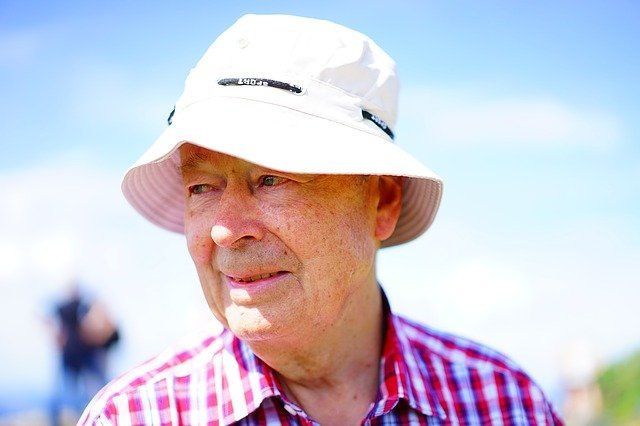
Summer is a time of fun and relaxation for most people. But for the elderly, heat and sun can be dangerous if appropriate precautions are not taken. Here are some tips for the elderly, as well as for those who care for them, to make the summer pleasant and safe:
Sufficient water intake
Older people are more prone to dehydration than younger people. They may also be less aware of their thirst and have difficulty adjusting to temperature changes. Remember to drink water often, and make sure you always carry enough water with you while driving a car or bus.
Cool down
Even a small increase in temperature can shorten the life expectancy of people with chronic diseases. Shopping malls, cinemas and libraries provide spacious and refrigerated spaces if your apartment or house is not air conditioned. Going to such places also gives you the opportunity to get out of the house and exercise (walk) without exhaustion due to the high temperatures outside.
Stay in touch
High temperatures can be life-threatening, so communication plays an important role in keeping older people safe. Your friends and family should know if you will spend more time outdoors, even if it means you are in your backyard. You should make sure that your older family members are well and healthy, at least twice a day.
Meet the neighbors
Stay in touch with those who live in your neighborhood and find out something about them. If you are an elderly person, arrange with a younger neighbor to stop by and check periodically if everything is OK. The friendship that can be created along the way is a bonus!
Know who to call
Prepare a list of emergency phone numbers and place them next to the phone. In this way, in case of need, the right people can be quickly called to help and prevent health complications.
Wear appropriate clothing
Everyone, including the elderly, should dress according to the weather. When warm, natural materials (such as cotton) are more comfortable than synthetic fibers. Prepare your summer wardrobe with light and wide clothes, so that you feel cool and comfortable.
Eye protection
Too much sun exposure can irritate the eyes and cause vision damage. Wearing sunglasses can protect your eyes from harmful UV rays.
Understand the risks of overheating (hyperthermia)
During the summer, be especially careful about the possibility of overheating of the body – a condition known as hyperthermia. Heat stroke is an advanced form of hyperthermia that can be life-threatening. If you notice the following warning signs, seek medical attention immediately:
– Body temperature higher than 40 Celsius degrees;
– Behavioral changes, such as confusion, anxiety, or grumpiness;
– Dry skin;
– Nausea and vomiting;
– A headache;
– Shortness of breath and rapid pulse;
– No sweating, even though it is hot;
– Unconsciousness.
In case of these symptoms and signs, call for medical help, and then get away from the warm, lie down and put cold compresses on the body.
Apply sunscreen and wear a hat
Both young and old should use sunscreen when they are outside. Older people especially need sun protection. Hats and caps are also a great idea, especially for those with light hair and those with little hair.
Apply mosquito spray
If you live in areas where there are a lot of mosquitoes and where the West Nile virus is present, and if you spend a lot of time outdoors (especially at night), use mosquito repellents to reduce the risk of getting this virus.
Practice smart
If you enjoy outdoor activities, such as walking or gardening, make sure you wear appropriate clothing and protective equipment. It is also important to keep track of time – do not stay outside for long and make sure you drink even more water than usual when exercising. Also, it is good to exercise outdoors early in the morning or later in the evening, when the sun is not so strong.
If you follow these tips, you can spend a pleasant, fun and fulfilling summer, no matter how old you are.
.
.
.
Text taken from: https://www.care.com/a/12-summer-safety-tips-for-the-elderly-1404231319
Photo: Hans Braxmeier, Pixabay
